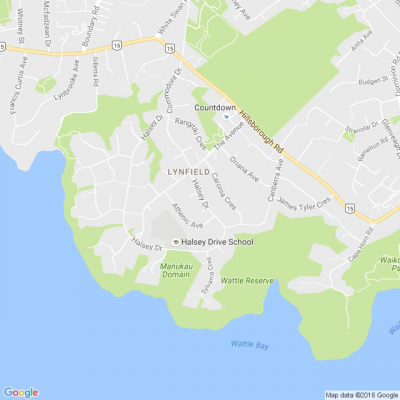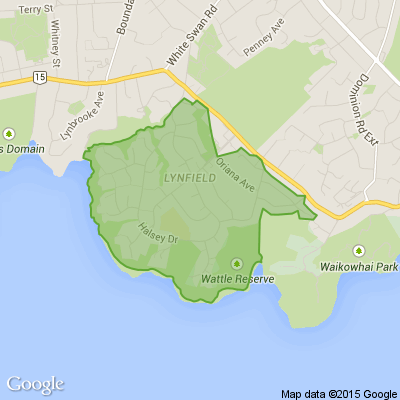Daylight saving is coming to an end for another year, which means an extra hour of sleep for many
Here's everything you need to know.
=============================
When does daylight saving end in New Zealand?
Daylight saving time ends every year at 3am on the first Sunday in April.
That means it ends this year at 3am on Sunday, April 7.
Do the clocks go forward or back?
That's right, clocks go back for the winter, from 3am to 2am.
That means you get an extra hour's sleep-in and it won't be as dark when you wake up in the morning - at least for a while.
It also means the sun will go down an hour earlier in the evening, so if you've got outside chores to complete, get them done faster.
How do I change the time on my phone?
You probably won't need to, because most smart phones will adjust to time zones automatically.
Here's how to check if your smartphone does that:
Android: Go into the clock app, tap more and then go into settings. Then go into change date and time, select set time zone automatically and then select use location to set time zone.
iPhone: Open settings, select general, to go date & time and make sure set automatically is turned on
Samsung: Open settings, go to general management, select date and time and then make sure automatic date and time is turned on. This should mean your phone will automatically reflect the time depending on where you are.
Why do we have daylight saving?
Because the Earth is on a tilt (of about 23 degrees, for those curious), we are exposed to more sun during summer and less during winter.
That means the days are longer during the warmer months and shorter in the colder months.
Daylight saving is intended to make the most of those long daylight hours. It means an extra hour of light on summer evenings, rather than super early in the mornings when hardly anyone is awake to enjoy it.
How long have we been doing this?
New Zealand first observed daylight saving in 1927.
However, the dates that clocks went forward and back, and the amount of time they were changed, varied over the following years.
In 1941, daylight saving was extended year-round under emergency regulations to help save energy during World War II.
Five years later, daylight saving time (or summer time as it was then known) was adopted as standard time, effectively discontinuing daylight saving.
In 1975, daylight saving was introduced again.
It was extended to its current dates — from the last Sunday in September to the first Sunday in April — in 2007.
When will daylight saving time start again?
Clocks will go forward one hour at 2am on Sunday, September, 29.
Do other countries observe daylight saving?
They do, but they're in the minority. About two thirds of the world's countries do not change their clocks throughout the year, according to Pew Research.
The practice is most popular in Europe, where 37 out of 44 countries observe daylight saving, and it's also observed in parts of North America, Latin America and Australia.
Egypt is the only African nation with daylight saving after bringing it back in 2023.
Countries close to the equator do not usually change their clocks as the length of their days does not vary enough throughout the year to justify it.
What if I'm working when the time changes?
The rules around getting paid for working during daylight saving time are set out in the Time Act 1974.
It says that if you're working when clocks go back an hour, you are entitled to be paid for that extra hour.
For example, if your shift started at 10pm and finishes at 6am, you will have actually worked nine hours and must be paid for nine hours of work.
If you're working on 29 September when the clocks go forward, you are still entitled to be paid for your normal hours. In this instance, a 10pm-6am shift will only mean seven hours of work, but you must be paid for eight.
I've changed the clock on my microwave — what next?
Daylight saving is a good time to check the batteries on your smoke alarm by pushing the test button to sound the alarm.
Check the alarm's expiry date too — most last a maximum of 10 years — and give the cover a clean to avoid false alarms from dust buildup.
==========================================
rnz.co.nz
==========================================
⚠️ DOGS DIE IN HOT CARS. If you love them, don't leave them. ⚠️
It's a message we share time and time again, and this year, we're calling on you to help us spread that message further.
Did you know that calls to SPCA about dogs left inside hot cars made up a whopping 11% of all welfare calls last summer? This is a completely preventable issue, and one which is causing hundreds of dogs (often loved pets) to suffer.
Here are some quick facts to share with the dog owners in your life:
👉 The temperature inside a car can heat to over 50°C in less than 15 minutes.
👉 Parking in the shade and cracking windows does little to help on a warm day. Dogs rely on panting to keep cool, which they can't do in a hot car.
👉 This puts dogs at a high risk of heatstroke - a serious condition for dogs, with a mortality rate between 39%-50%.
👉 It is an offence under the Animal Welfare Act to leave a dog in a hot vehicle if they are showing signs of heat stress. You can be fined, and prosecuted.
SPCA has created downloadable resources to help you spread the message even further. Posters, a flyer, and a social media tile can be downloaded from our website here: www.spca.nz...
We encourage you to use these - and ask your local businesses to display the posters if they can. Flyers can be kept in your car and handed out as needed.
This is a community problem, and one we cannot solve alone. Help us to prevent more tragedies this summer by sharing this post.
On behalf of the animals - thank you ❤️

What word sums up 2024, neighbours?
If 2020 was the year of lockdowns, banana bread, and WFH (work from home)....
In one word, how would you define 2024?
We're excited to see what you come up with!









 Loading…
Loading…




